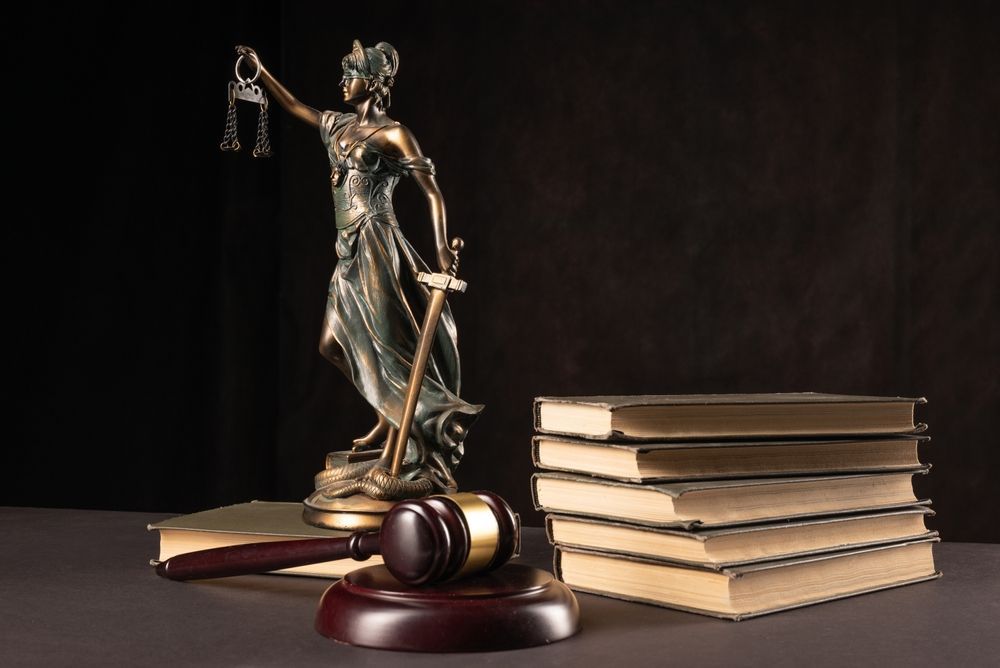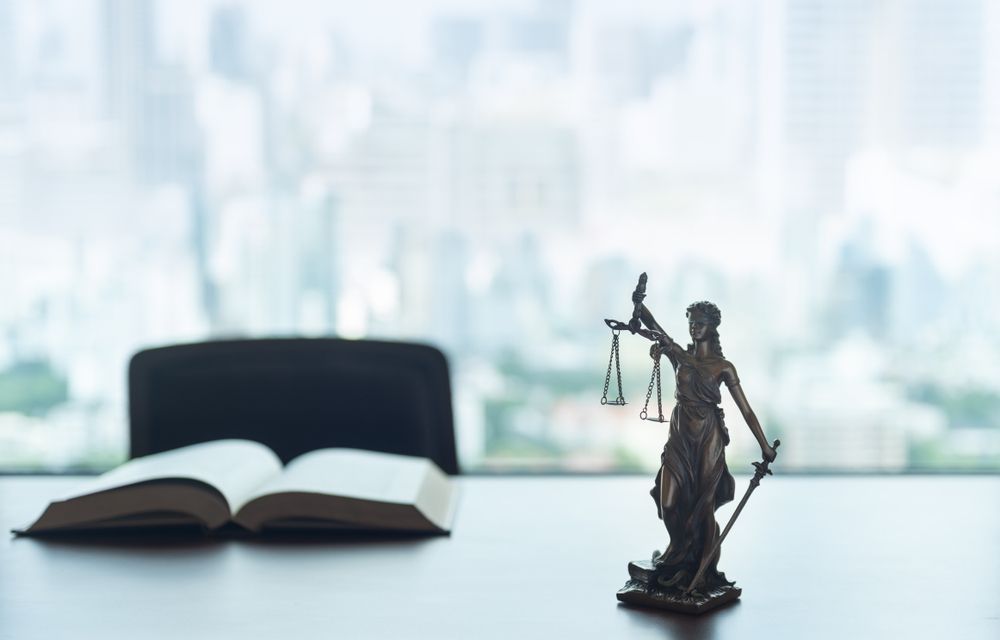Ensure Your Safety After a Car Accident in Atlanta
In the immediate aftermath of a car crash, you're understandably shaken, and possibly even in shock. This sudden traumatic event can unmoor even the steadiest of temperaments. However, what you do in the first minutes and hours after the collision can make all the difference to both your physical and financial recovery. Partnering with a car accident lawyer immediately can give you the critical assistance you need to do what's right for your safety and others involved.
This article provides a detailed guide for individuals involved in car accidents in Atlanta, helping them take the immediately critical steps needed following an incident. Car accidents are traumatic events that leave victims facing physical injuries, emotional stress, and legal uncertainties. In such times, prompt action can be the difference between an incomplete claim and securing proper compensation for damage, pain and suffering, and injuries. The guide emphasizes practical steps, from assessing personal safety and contacting emergency services to recording evidence and notifying insurance providers. It also incorporates legal precautions to protect one’s rights in car accident cases, including consulting a car accident attorney in Atlanta when needed, and addressing critical details that law enforcement, such as the Atlanta police department, might request.
By following these steps, accident victims can effectively manage their vehicle accident case, reduce further harm or complications, and prepare for future legal or insurance disputes. The following sections outline each step in detail for a systematic approach when disaster strikes.
Transitioning now to the practical steps necessary for immediate safety and legal protection, the following sections offer clear instructions, tips, and action plans to secure evidence, care for injuries, and document everything needed for a successful personal injury claim.
Assess Your Condition and Safety at the Scene
Immediately after a car accident in Atlanta, the first priority is to evaluate both personal safety and the safety of others around you. This step guarantees that emergency actions are taken, preventing further injuries or complications from secondary hazards. The primary concern here is to check oneself and any passengers in the vehicle for injuries, regardless of how minor they might seem. In many accident scenarios, shock or adrenaline can mask severe injuries that later become life-threatening. Confirming that everyone is conscious and stable is paramount; if anyone is unresponsive or appears injured, calling for immediate emergency help should be the next step.
Check Yourself and Others for Injuries
The initial evaluation should be methodical. Start by asking every occupant in the vehicle how they are feeling, and check for visible bleeding, broken bones, or signs of trauma such as cuts or bruises. Even if there is minor pain in any area, it is advisable not to delay reporting the injury to medical professionals. Small fractures, whiplash, or internal issues might not be immediately apparent but can become critical without prompt diagnosis and treatment. In addition to a physical check, note any signs of shock, such as nausea, dizziness, or shallow breathing. Keeping calm and documenting each observation is essential.
Move to a Secure Location if Circumstances Permit
If the accident occurs on a high-speed highway or busy downtown street, it is important to remain within the vehicle until it is safe to extract yourself. When possible, maneuver the vehicle to the shoulder of the road or another safe area to avoid obstructing traffic and to prevent additional accidents. Moving away from busy roadways minimizes the risk of being hit by other vehicles during rescue operations. The decision to relocate should be taken with caution; if there is significant damage to the vehicle’s structure, it may be safer to remain inside until help arrives.
Signal for Immediate Emergency Assistance
After checking that injuries are being addressed and the vehicle is in a safe position, the next immediate action is to call emergency services. In Atlanta, dialing 911 connects you with emergency response teams trained to handle accident scenes efficiently. When making the call, clearly state that the situation involves a car accident, specify your exact location, and mention if there are any serious injuries. The emergency operator will dispatch police, medical services, and possibly fire services if needed. This early call is crucial not only for health reasons but also to establish an official record of the accident that can be used in any future legal or insurance proceedings.
Alert Local Authorities Immediately
After securing safety at the scene, notifying local authorities is the next critical step. Reporting the accident to the appropriate law enforcement agencies, such as the Atlanta police department, creates an official record of the incident that details the circumstances, parties involved, and any traffic violations. This documentation is indispensable when filing a car accident claim or seeking legal advice regarding potential negligence or punitive damages. Cooperation with police can also help prevent disputes about fault, as an impartial investigation tends to reveal objective details of the incident.
Contact Emergency Services With Clear Details
Clarity and brevity are vital when contacting emergency services. Provide accurate information about the number of vehicles involved, the location of the accident, and any particular dangers at the scene, such as fuel leaks, overturned vehicles, or potential fire hazards. This detailed information allows first responders to tailor their approach appropriately for faster and safer access to help. Being organized during the call reduces confusion and speeds up the deployment process, which is essential for addressing the most urgent medical or safety needs.
Request Help and Police Support on Site
Beyond merely reporting the accident, it is important to request a full emergency response that includes police support. The presence of police at the scene means evidence is secured in its original state before any alterations occur due to clean-up or other external factors. Their notes and reports will be valuable for later legal consultations and for insurance companies that evaluate the extent of damage and liability in car accident cases. Always follow any directions given by the police, as they might coordinate crowd control or manage ongoing traffic safely.
Provide Accurate Incident Information
Be precise when describing how the accident occurred. Include details such as the speed of your vehicle, the actions of other drivers, and any road hazards that may have contributed to the incident. It is essential to avoid speculation or assumptions and stick to factual events. Accurate information helps investigators determine fault and assess whether comparative negligence plays a role. In instances where there is disagreement or confusion about the sequence of events, a clear statement from all involved parties can avert prolonged legal disputes. Keeping a clear mental note of these details, or even writing them down on a notepad if possible, can be crucial later.
Gather and Secure Key Accident Details
Obtaining and preserving key accident details immediately following a car accident is critical to building a strong vehicle accident case. Documenting these details can serve as irrefutable evidence during insurance claims or legal proceedings. Since vehicles are often subject to quick removal from the scene due to traffic or cleanup efforts, recording as much information as possible on the spot is essential.
Exchange Relevant Information With Involved Parties
After confirming everyone’s safety and contacting emergency services, the next step is to exchange important information with the other party or parties involved in the accident. This includes names, contact details, insurance information, and vehicle identification numbers (VINs). Documenting this information as accurately as possible reduces the risk of disputes over who is responsible for the accident or any resulting injuries. It is advisable to confirm details verbally and then re-check them once written down to avoid common errors. Keeping copies of this data is critical for your car accident claim and for future interactions with insurance companies and legal professionals.
Note Vehicle Positions and Environmental Factors
An essential part of securing accident evidence is to record the precise positions of all vehicles involved at the time of the crash. Observations should include the angles at which the vehicles collided, their positions relative to any road markings or intersections, and proximity to hazardous elements like overhanging trees or debris. Additionally, external factors such as lighting conditions, weather, and road conditions should be documented. This observation helps establish whether poor visibility, slick roads, or a lack of traffic signals contributed to the incident. Photographs taken immediately after the accident can capture these details effectively and provide visual proof of the accident scene’s conditions.
Record Immediate Observations Without Delay
It is crucial to capture your recollection of the accident events while memories are still fresh. Use your smartphone to record a brief verbal narration or take notes outlining the sequence of events. This record should include details such as the time of the accident, the behavior of other drivers, and any immediate damage observed on the vehicles. Personal observations can be invaluable, especially when there are disputes regarding fault. In addition, environmental sounds, any unusual signals like honking or screeching tires, and immediate visual cues are all valuable pieces of information for building a comprehensive picture of the accident. The more detailed your record, the stronger your case will be when proving negligence or seeking legal remedies.
Collect Witness Accounts and Visual Evidence
Collecting witness accounts and capturing visual evidence at the scene of a car accident are vital steps in supporting your vehicle accident case. Independent witness statements can help confirm your account of the incident, while photographs serve as hard evidence of the damage incurred. This information can also play an important role in determining liability and securing compensation for injuries, property damage, and even punitive damages if another driver’s negligence is evident.
Request Contact Information From Bystanders
Approach individuals who witnessed the accident and ask for their contact information. Witnesses can include bystanders, passengers in other vehicles, or even pedestrians. Obtain their full names, phone numbers, and email addresses if possible. Detailed witness information strengthens your claim by offering independent verification of facts such as the speed of vehicles involved, road conditions, and adherence to traffic signals. Having multiple accounts that corroborate your story is especially important when contesting differing statements from conflicting parties. Additionally, witnesses might provide details that you may have overlooked due to the shock and adrenaline immediately following the accident.
Capture Photographic Evidence of the Scene
It is essential to document the scene as comprehensively as possible using your smartphone or a camera. Take multiple photos from various angles, capturing the extent of vehicle damage, the road layout, skid marks, and any relevant road signs. Check that both wide-angle shots and close-ups are taken, enabling a better understanding of the accident’s overall context. Photographs serve as a physical record that is less likely to be challenged later in legal proceedings. They can show evidence of mechanical failures, misaligned vehicles, and even the time of day, which might be critical in assessing whether vehicle speed or driver reaction times contributed to the accident. Always preserve these photographs by uploading them to a secure cloud service or emailing them to yourself immediately following the accident.
Make Quick Notes of Statements and Surroundings
In addition to photos and witness information, jot down quick notes regarding any verbal statements made by other drivers and bystanders. Record observations such as expressions of shock, admissions of fault, or even emotional responses that could indicate the level of negligence. These notes should also include environmental details like pavement conditions, nearby traffic, or any obstructions that might have played a role. Writing down these notes while the memory is fresh minimizes the risk of forgetting important elements that could be crucial during legal investigations or insurance assessments. These immediate notes, when coupled with witness statements and visual evidence, build a comprehensive record that supports your case for legal redress and proper compensation.
Prioritize Medical Attention for Safety and Documentation
Even if injuries initially appear minor, prioritizing medical attention should be your next focus after confirming that all necessary evidence has been gathered. Medical evaluations secure your health and safety and create essential documentation for your vehicle accident case. Often, injuries such as whiplash, concussions, or soft tissue damage may not immediately manifest severe symptoms, yet they can lead to long-term complications if left untreated. Seeking prompt medical evaluation, therefore, is a critical step in protecting both your health and your legal rights.
Seek Prompt Evaluation Even if Injuries Appear Minor
It is a common misconception that only visibly severe injuries require immediate attention. Medical professionals recommend that anyone involved in an auto accident receive a thorough evaluation, even if they feel fine. Minor injuries might develop into chronic conditions if not properly diagnosed and treated. Additionally, a complete medical examination establishes a baseline for documenting injuries, which is fundamental when filing for pain and suffering or other personal injury claims. Trusted sources such as the American College of Emergency Physicians indicate that early medical intervention can significantly reduce the risk of complications and swiftly administer necessary treatments. Medical records and diagnostic reports form part of the essential evidence when arguing for compensation later.
Document Any Injuries for Future Reference
Once medical assistance has been secured, all examinations, treatments, and diagnoses must be documented. This documentation acts as a form of evidentiary support for future legal actions or insurance claims. Keep copies of doctors' reports, X-rays, and any prescribed treatments or medications. Detailed records demonstrate that you followed proper procedures by seeking help promptly, which reinforces your claim of an auto accident injury caused by another party’s negligence. Accurate documentation is also beneficial during follow-up medical appointments, as it provides continuity of care and tracks the progress of any conditions that may arise post-accident.
Follow Professional Recommendations for Follow-Up Care
After your initial evaluation, strictly adhere to any medical advice provided by healthcare providers. Follow-up visits, prescription regimens, and physical therapy sessions are critical not only for your recovery but also for establishing a consistent record of the injury’s impact. Medical professionals often advise a specific period of rest combined with prescribed exercises for the best recovery outcomes. Maintaining a routine of scheduled appointments and carefully adhering to treatment protocols creates a comprehensive timeline of your recuperation. This comprehensive record confirms that your injuries are genuine and that the accident has had a direct impact on your well-being, which is a significant factor when negotiating settlements or pursuing legal action.
Initiate Post-Accident Procedures for Further Protection
After all immediate safety and medical concerns have been addressed, initiating post-accident procedures is critical for protecting your legal rights and guaranteeing no crucial evidence is lost. At this stage, it is important to notify insurance providers, preserve all evidence collected during the accident, and consult with professionals who specialize in car accident cases. This proactive approach not only supports a well-documented claim but also aids in preventing further complications that might arise from delays in addressing post-accident necessities. By taking these measures, you create a robust foundation for any future legal actions, and your case is thoroughly supported by documentation and professional guidance.
Notify Your Insurance Provider as Soon as Possible
The sooner your insurance provider is informed of the accident, the faster they can begin processing your claim. Contact your insurance company immediately, supplying them with all relevant details, including the accident's time, location, and circumstances. Provide them with copies of the police report, photographs, and any medical documentation you have gathered. Prompt notification prevents later disputes over when the accident was reported and demonstrates that you are proactive in protecting your interests. This is especially important in Atlanta, where local laws under Georgia law stipulate timely reporting for accident claims. Clear communication with your insurer minimizes delays and helps in negotiating fair settlements, particularly when punitive damages or comparative negligence may be in dispute.
Compile and Safely Store All Gathered Records
All evidence collected at the scene, including witness information, photographs, recorded notes, and any form of documentation, should be compiled in an organized manner. Creating both digital and physical copies allows you to protect the information against loss or tampering. This secure record-keeping is essential when faced with disputes regarding the circumstances of the accident. Maintaining organized records supports your personal injury claim and guarantees that if legal challenges arise, your case is built upon a foundation of carefully archived evidence. Storage solutions such as encrypted cloud services, physical binders, or dedicated hard drives are recommended for securely maintaining all data. Each piece of evidence, from vehicle identification number (VIN) details to the layout of the accident scene, can become critical during negotiations or court proceedings.
Consult With Local Accident Professionals for Guidance
Professional guidance is invaluable when managing a car accident case. Engage with a specialized accident attorney who is well-versed in Georgia law and experienced with local cases in Atlanta. A knowledgeable lawyer can help you understand your rights, advise on the merits of your claim for injuries, pain and suffering, and help you receive a fair settlement. They assist with legal procedures and interpreting the documentation, such as medical records and police reports, collected at the scene. Consulting with local professionals increases your confidence in managing the post-accident process and strengthens your case for claiming compensation against insurance companies. In this context, an expert legal opinion is indispensable in securing both immediate post-accident relief and long-term financial recovery.
The table above summarizes key evidence that should be collected and preserved for your car accident case. Each item plays a vital role in establishing the circumstances of the accident and substantiating your claim for damages. Meticulous record-keeping can prove invaluable in receiving the full compensation you deserve.
Frequently Asked Questions
Q: What should I do immediately after a car accident in Atlanta?
A: Immediately assess your condition and that of your passengers, move to safety if possible, signal emergency assistance, and call 911. Securing safety and capturing initial details is critical before further actions.
Q: Why is it important to notify the Atlanta police department after an accident?
A: Reporting to the police creates an official record, which is essential for documenting the accident, establishing fault, and supporting your insurance claims or legal case against any negligent parties.
Q: How soon should I seek medical attention even if I feel fine?
A: It is important to seek prompt medical evaluation immediately after an accident, as some injuries may take time to manifest. Early documentation from doctors strengthens your case for personal injury claims.
Q: What kind of evidence should I gather at the accident scene?
A: Collect witness information, take photos and videos of vehicle damage, record details of vehicle positions and environmental conditions, and note any immediate verbal statements. This evidence is crucial for supporting your claims.
Q: How do I safely store and compile accident-related records?
A: Secure digital and physical copies of all documents, such as police reports, photographs, and medical records. Using encrypted cloud storage and organized binders means you can retrieve the evidence easily during legal or insurance proceedings.
Q: When should I contact my insurance provider?
A: Notify your insurance provider immediately after the accident, ideally, immediately after securing safety and gathering initial evidence. Prompt notification supports faster claims processing and prevents delays in settling your case.
Final Thoughts
Taking immediate, methodical steps after a car accident is critical for personal safety and building a strong legal case. By assessing your condition, alerting authorities, collecting detailed evidence, and seeking professional medical and legal guidance, accident victims can secure the compensation they deserve. Recording every detail, from vehicle positions to witness contacts, helps establish a strong claim for damages under Georgia law. Acting quickly and methodically not only protects your physical well-being but also preserves critical evidence for your car accident claim.
Recent Posts






Attorney Joseph Zdrilich
Attorney Joseph A. Zdrilich is the founder of Zdrilich Injury Law and has represented injured clients across Georgia since 2007. He is a graduate of the University of Richmond and Syracuse University College of Law and has handled both bench and jury trials in personal injury, workers’ compensation, trucking, and auto accident cases. He is admitted to practice in all Georgia state courts, the U.S. District Courts for the Northern and Middle Districts of Georgia, and the Eleventh Circuit Court of Appeals. If you were injured due to someone else’s negligence, contact Zdrilich Injury Law today for a free legal consultation.
GET A FREE CONSULTATION TODAY
INJURED? TAKE YOUR LIFE BACK!
Zdrilich Injury Law is committed to helping injured Georgians receive the money they need to recover physically and financially after an accident.
